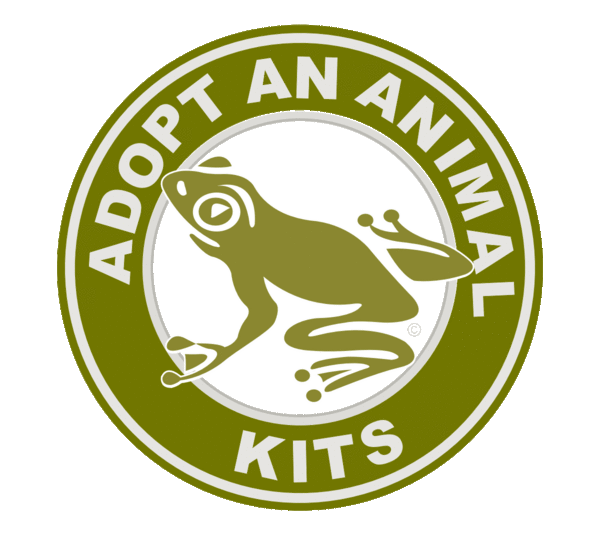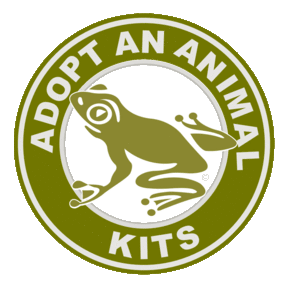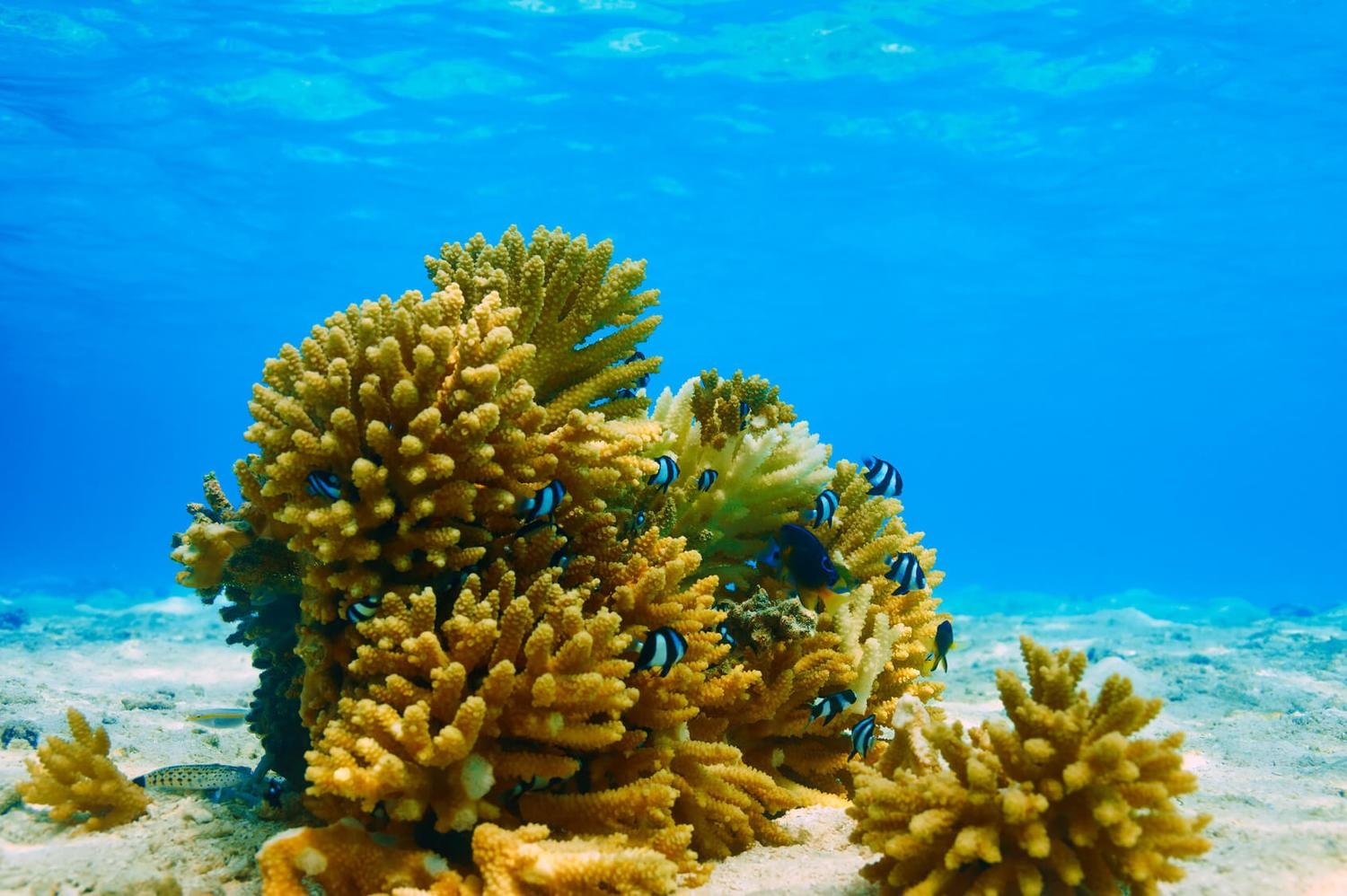

Adopt An Animal Kits
Adopt An Animal symbolically. Your Adopt An Animal Kit comes in a Deluxe Folder and includes: Glossy Photo of Your Adopted Animal; Adopt An Animal Adoption Certificate; Fact Sheet About Your Adopted Animal; Help Animals Info Cards Packed With Information On Animal Issues & How You Can Help Animals And The Environment. Adopt An Animal for Yourself or as a Gift.
Adopt A Coral
Adopt A Coral
Your Adopt A Coral Kit comes in a Deluxe Folder and includes:
- Glossy Photo Of Your Adopted Coral
- Adopt A Coral Adoption Certificate
- Fact Sheet About Your Adopted Coral
- Help Animals Info Cards Packed With Information On Animal Issues & How You Can Help Animals And The Environment
Adopt A Coral Kits make great gifts and can be sent directly to the recipient. Simply supply the recipient's name and mailing address as shipping information. We'll even include a letter stating the Adopt An Animal Kit is from you.
Adopt An Animal symbolic adoption is a one time fee. Adopt an animal for yourself or order an Adopt An Animal Kit as a gift. Help make a difference for animals - Adopt An Animal Today!
Adopt A Coral
Corals are marine invertebrates in the class Anthozoa of phylum Cnidaria. They typically live in compact colonies of many identical individual polyps. The group includes the important reef builders that inhabit tropical oceans and secrete calcium carbonate to form a hard skeleton.
Corals are sessile, which means that they permanently attach themselves to the ocean floor, essentially "taking root" like most plants do. We certainly cannot recognize them by their faces or other distinct body parts, as we can most other animals. So what exactly are corals? Corals actually comprise an ancient and unique partnership, called symbiosis, that benefits both animal and plant life in the ocean. Corals are animals, though, because they do not make their own food, as plants do. Corals have tiny, tentacle-like arms that they use to capture their food from the water and sweep into their inscrutable mouths.
Most structures that we call "coral" are, in fact, made up of hundreds to thousands of tiny coral creatures called polyps. Each soft-bodied polyp - most no thicker than a nickel - secretes a hard outer skeleton of limestone (calcium carbonate) that attaches either to rock or the dead skeletons of other polyps.
In the case of stony or hard corals, these polyp conglomerates grow, die, and endlessly repeat the cycle over time...slowly laying the limestone foundation for coral reefs and giving shape to the familiar corals that reside there. Because of this cycle of growth, death, and regeneration among individual polyps, many coral colonies can live for a very long time.
Most corals contain algae called zooxanthellae, which are plant-like organisms. Residing within the coral's tissues, the microscopic algae are well protected and make use of the coral's metabolic waste products for photosynthesis, the process by which plants make their own food. The corals benefit, in turn, as the algae produce oxygen, remove wastes, and supply the organic products of photosynthesis that corals need to grow, thrive, and build up the reef. More than merely a clever collaboration that has endured between some of the tiniest ocean animals and plants for some 25 million years, this mutual exchange is the reason why coral reefs are the largest structures of biological origin on earth, and rival old-growth forests in the longevity of their ecological communities.
Corals are a vital part of the marine world. There are around 70,000 different species of coral throughout the oceans of the world. They are most numerous in warm and tropical climates in the southern hemisphere.
Corals are divided into two subspecies based on how many tentacles they have. Corals with eight tentacles are known as Alcyonaria, which includes sea fans, soft coral and sea pens. Corals with more than eight tentacles are known as Zoantharia, which includes the coral species found in coral reefs.
Although some corals can catch small fish and plankton, using stinging cells on their tentacles, most corals obtain the majority of their energy and nutrients from algae that live within the coral's tissue. Corals require sunlight and grow in clear, shallow water, typically at depths shallower than 200 feet. Some species have adapted to living in deeper levels of the oceans.
Corals live from 3 months to 30 years, depending on the species. Coral species that make up the extensive coral reefs usually live much longer than species like the softer corals, which live on their own.
Coral reefs support more species than any other marine environment. Reefs rival rainforests in the amount of biodiversity they support. Thousands of creatures rely on coral reefs for their survival. They provide hiding places for marine animals to evade predators, and serve as a meeting and breeding ground.
Hidden beneath the ocean waters, reefs are also some of the oldest ecosystems on the planet, reflecting thousands of years of history. Although individual coral polyps are tiny, they create the largest living structures on earth - some reefs are visible from space.
THREATS TO CORAL
Coral reefs are under stress around the world. In particular, coral mining, agricultural and urban runoff, pollution (organic and inorganic), overfishing, blast fishing, disease, and the digging of canals and access into islands and bays are localized threats to coral ecosystems. Broader threats are sea temperature rise, sea level rise and pH changes from ocean acidification.
General estimates show approximately 10% of the world's coral reefs are dead. About 60% of the world's reefs are at risk due to human-related activities. The threat to reef health is particularly strong in Southeast Asia, where 80% of reefs are endangered. Over 50% of the world's coral reefs may be destroyed by 2030.
In the Caribbean and tropical Pacific, direct contact between common seaweeds and coral causes bleaching and death to the coral via transfer of lipid-soluble metabolites. Seaweed and algae proliferate given adequate nutrients and limited grazing by herbivores such as parrotfish.
Coral disease, tropical storms, tourism and recreation, vessel damage, marine debris and aquatic invasive species also threaten coral.
Many governments now prohibit removal of coral from reefs, and inform coastal residents about reef protection and ecology. While local action such as habitat restoration and herbivore protection can reduce local damage, the longer-term threats of acidification, temperature change and sea-level rise remain a challenge.
To eliminate destruction of corals in their indigenous regions, projects have been started to grow corals in non-tropical countries.
Adopt Adopt An Animal Kits
Our Adopt An Animal Kits are educational packets that allow you to symbolically adopt a favorite animal species and contain a variety of information promoting the protection of wildlife, companion animals, farm animals and the environment. By purchasing a symbolic adoption kit you will receive a packet of information regarding daily choices you can make to help the earth and animals.
Your Adopt An Animal Kit comes in a Deluxe Folder and includes:
Glossy Photo Of Your Adopted AnimalAdopt An Animal Adoption CertificateFact Sheet About Your Adopted AnimalHelp Animals Info Cards Packed With Information On Animal Issues & How You Can Help Animals And The Environment.
Adopt an animal for yourself or order an Adopt An Animal Kit as a gift. Symbolically adopting an animal is the perfect gift for a loved one who loves animals, and helps to promote the compassionate treatment of animals and respect for the environment by offering information on how to help the earth and animals. Adopt An Animal Kits can be sent directly to the recipient: simply supply the recipient's name and mailing address as shipping information. We'll even include a letter stating the Adopt An Animal Kit is from you.
Adopt An Animal Kits is a small, independent business not affiliated with any other business, non profit or charitable organization.
Fast Shipping!
Shipping time for Adopt An Animal Kits averages 2 to 4 business days - USA. Allow additional time for Adopt An Animal Kits orders outside the USA. Your Adopt An Animal Packet will arrive approximately 2 to 4 business days following shipping date. Shipping for Adopt An Animal Kits within the USA is by U.S.P.S. Priority Mail.
INTERNATIONAL ORDERS: Average shipping time for Adopt An Animal Kits outside of the USA is 5 to 14 business days, including Canada. International Shipping & Handling for Adopt An Animal Kits is by U.S.P.S. First Class Mail.
About Us

Adopt An Animal Kits, LLC
The world is teaming with an amazing diversity of animals. Some species are beautiful, others bizarre — but they all are important to the ecosystem and deserve our respect, compassion and protection. Unfortunately, many animal species are declining at a rapid rate as a result of irresponsible human activities. Habitat destruction, pollution, hunting, poor agricultural practices and changes in climate are among the threats faced by wildlife and domestic animals.
Adopt An Animal Kits, LLC is a small business who believes in promoting the advancement of compassionate living by educating the public about animal and environmental issues and what individuals can do to prevent cruelty to animals. Through our work, we strive to eliminate the prejudice of animals (speciesism) through educational efforts. Our business produces printed and printable educational materials available to individuals with an interest in earth and animal topics. Our Adopt An Animal Kits seek to educate and influence individuals on environmental and animal issues. The purchase of an Adopt An Animal Kit allows you to symbolically adopt your, or your loved one's, favorite animal species while promoting the protection of wildlife, companion animals, farm animals and the environment. Rather than adopting an indivdual animal, you are symbolicly adopting the species. Each kit contains a collection of information on how you or your loved one can make daily choices to help animals and the environment.
Our website provides an information portal regarding these issues. Information posted on the site is free of charge and available to anyone with an interest. Our printed and printable materials are available to individuals with an interest in earth and animal issues. We produce hundreds of fact sheets, flyers, and digital materials regarding environmental and animal issues. Most materials are available at no cost to anyone with an interest.
Adopt An Animal Kits, LLC is not a charitable or nonprofit organization.

